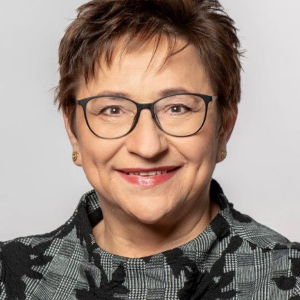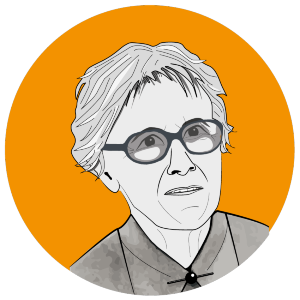| Time: | June 18, 2020, 4:00 p.m. (CEST) |
|---|---|
| Lecturer: | Prof. Dr. Ingrid Kögel-Knabner, Department of Ecology and Ecosystem Management and Institute of Advanced Study, TU Munich |
| Venue: | Planetarium Stuttgart Keplersaal Willy-Brandt-Straße 25 70173 Stuttgart Link: Anneliese Nitehammer Vortragsreihe |
| Download as iCal: |
|
Prof. Dr. Ingrid Kögel-Knabner from the Department of Ecology and Ecosystem Management and Institute of Advanced Study of the TU Munich will give the Anneliese Niethammer Lecture of the summer semester 2020 on June 18. She will give a talk about: "Mineral surfaces and organic matter accumulation in soils".
Abstract
Soil is built of a dynamic and hierarchically organized system of various organic and inorganic constituents and organisms, the spatial structure of which defines a large, complex and heterogeneous biogeochemical interface. These soil structures are resulting from soil forming processes involving association of organic and mineral materials at the molecular scale, and determines major soil functions. In this context soil organic matter is not only of importance as a carbon sink, but also as a gluing agent for soil structure. The spatial distribution of elements characteristic of organic matter (e.g., C or N) and minerals (e.g., Fe, Al, O, or Si) in soils and sediments at the submicrometer scale is of special interest for the identification of key biogeochemical processes, such as C sequestration. Specific image processing approaches allow to map different soil components and to elucidate their association within the soil microstructure: Different types of micrometer-sized domains, each characterized by a specific micro-architecture with a definite organo-mineral assemblage are identified within an aggregate originating from an arable loamy topsoil. A chronosequence study reveals increased coverage and a simultaneous development from patchy-distributed organic coatings to more connected coatings with increasing time of soil development. Mature soils reveal organic matter in piled-up patches decoupled from the mineral surface area, but the surface is only partly covered with organic matter. This sustains a coexistence of soil functions provided by mineral surfaces beyond OM sequestration. The decoupling of OM sequestration from the proportion of mineral surfaces in the soil implies that there is no limit predetermined by clay content for the capacity of soils to sequester organic carbon.
About Ingrid Kögel Knabner
Prof. Kögel-Knabner studied geoecology at the University of Bayreuth, where she also obtained a doctorate in soil science (1987) and earned her post-doctoral teaching qualification (Habilitation 1992). In 1991, she was appointed to a professorship for soil science and soil ecology at the Ruhr-Universität Bochum. Since 1995, she has served as Chair of Soil Science at TUM. Prof. Kögel-Knabner is a member of academies (Leopoldina, acatech, Bavarian Academy of Sciences) and member of the Bioeconomy Council of the German Federal Government. Since 2015, she has been on the list of "Highly Cited Researchers", and counts among the most cited scientists in the world.
Research Interests
Soil processes and soil management, especially the type and intensity of land use, affect the global carbon cycle. Prof. Kögel-Knabner (b. 1958) investigates the formation, composition and properties of organic matter in soils and their central role in the global carbon cycle. She uses sophisticated spectroscopic methods, such as 13C NMR spectroscopy and nanoSIMS, to investigate the association of organic and mineral matter in soils at the submicron scale.
Link: SFB 1313 Webpage



